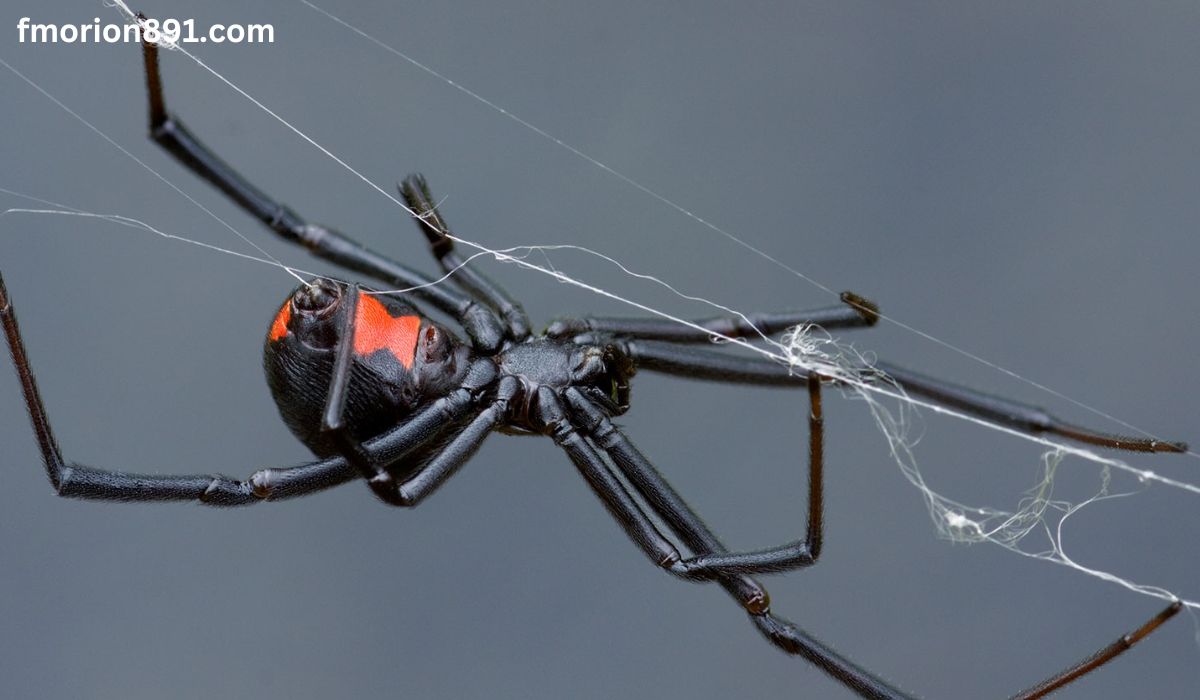Introduction
The black widow spider, notorious for its venomous bite, often evokes fear and fascination. With its glossy black body and red hourglass marking, this spider is both a marvel of nature and a cause for concern. If you encounter a black widow, you might wonder, “Should I kill a black widow spider?” This article delves into the pros and cons of killing black widows, explores non-lethal alternatives, and offers tips on prevention and safety.
Understanding Black Widow Spiders
Identifying Black Widows
To decide whether to kill a black widow spider, you first need to identify it accurately. Black widows are typically recognized by their shiny black bodies and distinctive red hourglass shape on the underside of their abdomen. They are relatively small, with females being about 1.5 inches long including leg span. Males are smaller and less dangerous, often having less vivid markings.
Habitat and Behavior
Black widows prefer dark, undisturbed areas such as wood piles, basements, and sheds. They build irregular, tangled webs close to the ground. These spiders are reclusive and bite only when threatened, making them less likely to pose a risk unless directly disturbed.
Venom and Toxicity
The venom of a black widow is highly toxic and contains neurotoxins that can affect the nervous system. A bite from a black widow can cause severe pain, muscle cramps, and nausea. While bites are rarely fatal, especially with prompt medical treatment, they can be serious and require attention.
The Pros and Cons of Killing Black Widows
Pros of Killing Black Widows
- Reducing Risk of Bites: Eliminating black widows reduces the risk of being bitten, which is particularly important if you have young children or pets.
- Immediate Safety: Removing black widows from areas where people frequently visit can offer peace of mind and reduce anxiety about encountering them.
Cons of Killing Black Widows
- Ecological Impact: Black widows play a role in controlling insect populations. Removing them can disrupt local ecosystems and lead to an increase in other pest populations.
- Accidental Injury: Killing a black widow can be risky. Attempting to handle or kill the spider can lead to accidental bites if not done carefully.
Alternative Methods of Coexistence
Non-Lethal Removal
If you prefer not to kill black widows, consider these non-lethal methods:
- Use a Broom: Gently brush the spider into a container and release it outside.
- Vacuum Cleaner: Use a vacuum to remove the spider from your home, ensuring you empty the vacuum promptly and dispose of the spider far from your house.
Habitat Modification
Preventing black widows from entering your home involves modifying their habitat:
- Clean Up: Remove debris and clutter from around your home that can serve as hiding places for spiders.
- Seal Cracks: Ensure windows, doors, and vents are sealed properly to prevent spiders from entering.
Professional Pest Control
For persistent problems, professional pest control services can offer effective solutions. They can treat areas where black widows are found and provide advice on preventing future infestations.
Preventing Black Widow Bites
Safety Precautions
To reduce the risk of black widow bites:
- Wear Protective Clothing: Use gloves and long sleeves when handling outdoor items or working in dark, secluded areas.
- Be Cautious: Always check items like shoes and garden tools before use.
Educating Children
Teach children about the dangers of black widows and instruct them to avoid touching spiders. Education can prevent accidental encounters and bites.
When to Seek Medical Attention
Symptoms of a Black Widow Bite
Symptoms of a black widow bite may include severe pain, muscle cramps, and nausea. In severe cases, symptoms can escalate to difficulty breathing and chest pain. Seek immediate medical attention if you suspect a black widow bite, especially if symptoms worsen.
Emergency Procedures
If bitten, wash the area with soap and water, apply a cold compress, and seek medical attention promptly. Antivenom and pain relief are available for severe cases.
Black Widows and the Ecosystem
The Role of Black Widows
Black widows contribute to the ecosystem by preying on insects, helping to control pest populations. Their presence can be beneficial in maintaining ecological balance.
Benefits of Black Widows
Despite their fearsome reputation, black widows play a role in keeping other insect populations in check. They are part of a natural pest control system that helps manage the balance in the environment.
You May Also Like: Ovestæ: A Deep Dive into a Modern Wellness Phenomenon
Conclusion
The decision to kill a black widow spider should be weighed carefully. While eliminating these spiders can reduce the risk of bites, it also has potential ecological impacts. Exploring non-lethal removal methods and preventive measures can offer a balanced approach to coexisting with these spiders. Remember to prioritize safety and consult professionals if needed. By understanding black widows and their role in the ecosystem, you can make informed decisions that protect both your home and the environment.
FAQs
What should I do if I find a black widow spider?
If you find a black widow spider, consider non-lethal methods for removal, like using a broom or vacuum. If necessary, consult pest control.
Are black widow bites dangerous?
Yes, black widow bites can be dangerous, causing severe pain, muscle cramps, and nausea. Seek medical attention if bitten.
How can I prevent black widow spiders from entering my home?
Prevent black widows by sealing cracks, removing clutter, and keeping outdoor areas clean. Use protective clothing when handling potential hiding spots.
What are the benefits of black widow spiders?
Black widows help control insect populations, contributing to the ecological balance by preying on pests.
When should I consider killing a black widow spider?
Consider killing a black widow only if it poses an immediate risk to safety or if non-lethal removal methods are not effective.










